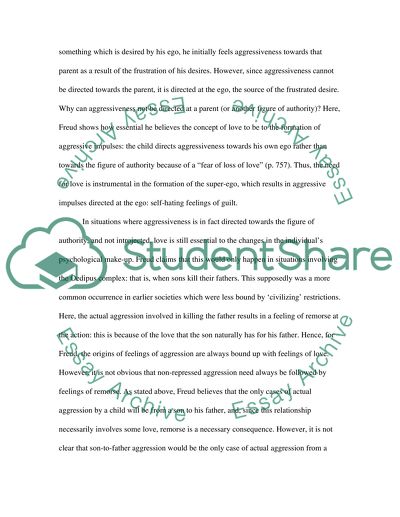Cite this document
(“Discuss the relationship between love and aggressivity in Freud's Essay”, n.d.)
Discuss the relationship between love and aggressivity in Freud's Essay. Retrieved from https://studentshare.org/miscellaneous/1519310-discuss-the-relationship-between-love-and-aggressivity-in-freuds-civilization-and-its-discontents
Discuss the relationship between love and aggressivity in Freud's Essay. Retrieved from https://studentshare.org/miscellaneous/1519310-discuss-the-relationship-between-love-and-aggressivity-in-freuds-civilization-and-its-discontents
(Discuss the Relationship Between Love and Aggressivity in Freud'S Essay)
Discuss the Relationship Between Love and Aggressivity in Freud'S Essay. https://studentshare.org/miscellaneous/1519310-discuss-the-relationship-between-love-and-aggressivity-in-freuds-civilization-and-its-discontents.
Discuss the Relationship Between Love and Aggressivity in Freud'S Essay. https://studentshare.org/miscellaneous/1519310-discuss-the-relationship-between-love-and-aggressivity-in-freuds-civilization-and-its-discontents.
“Discuss the Relationship Between Love and Aggressivity in Freud'S Essay”, n.d. https://studentshare.org/miscellaneous/1519310-discuss-the-relationship-between-love-and-aggressivity-in-freuds-civilization-and-its-discontents.


